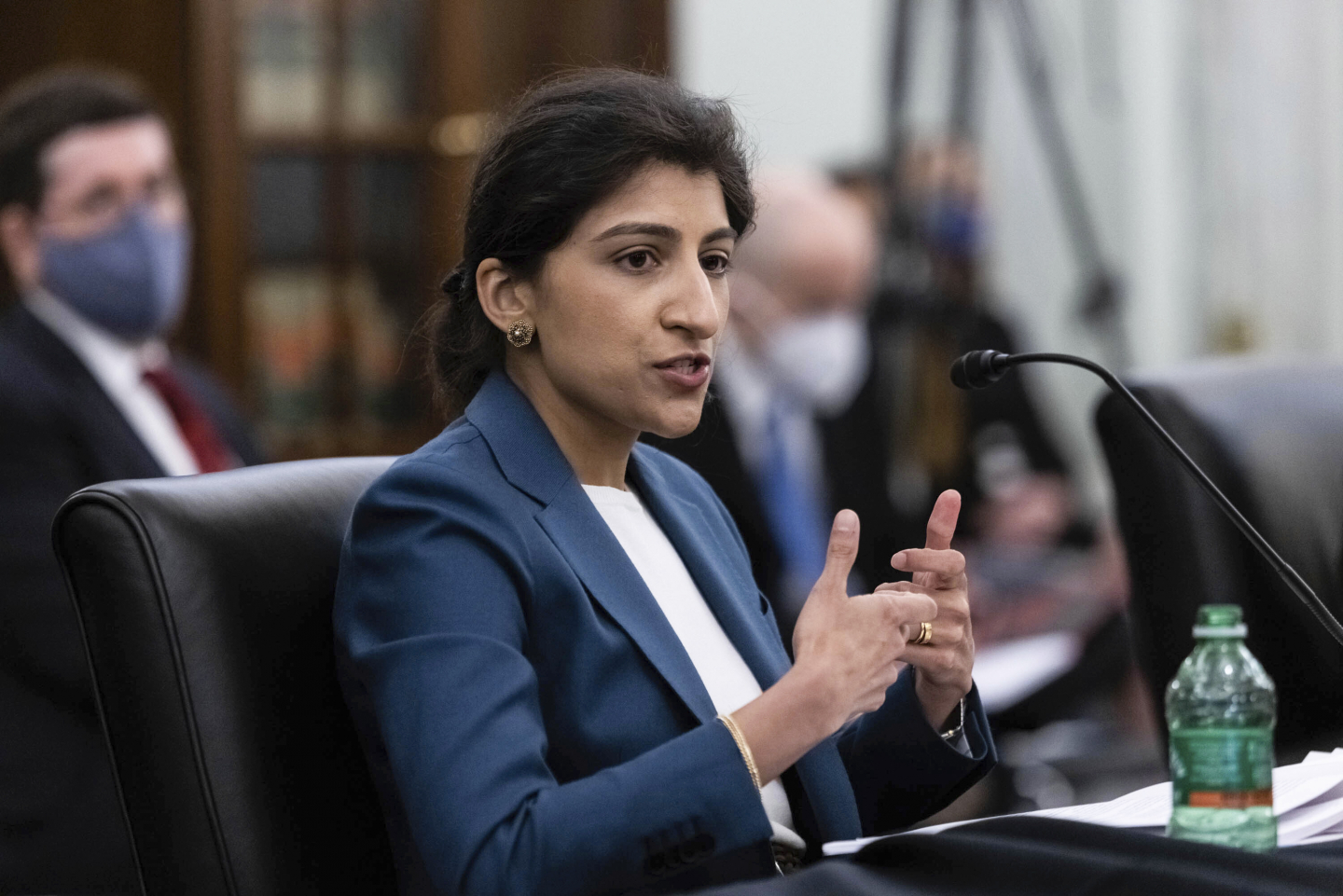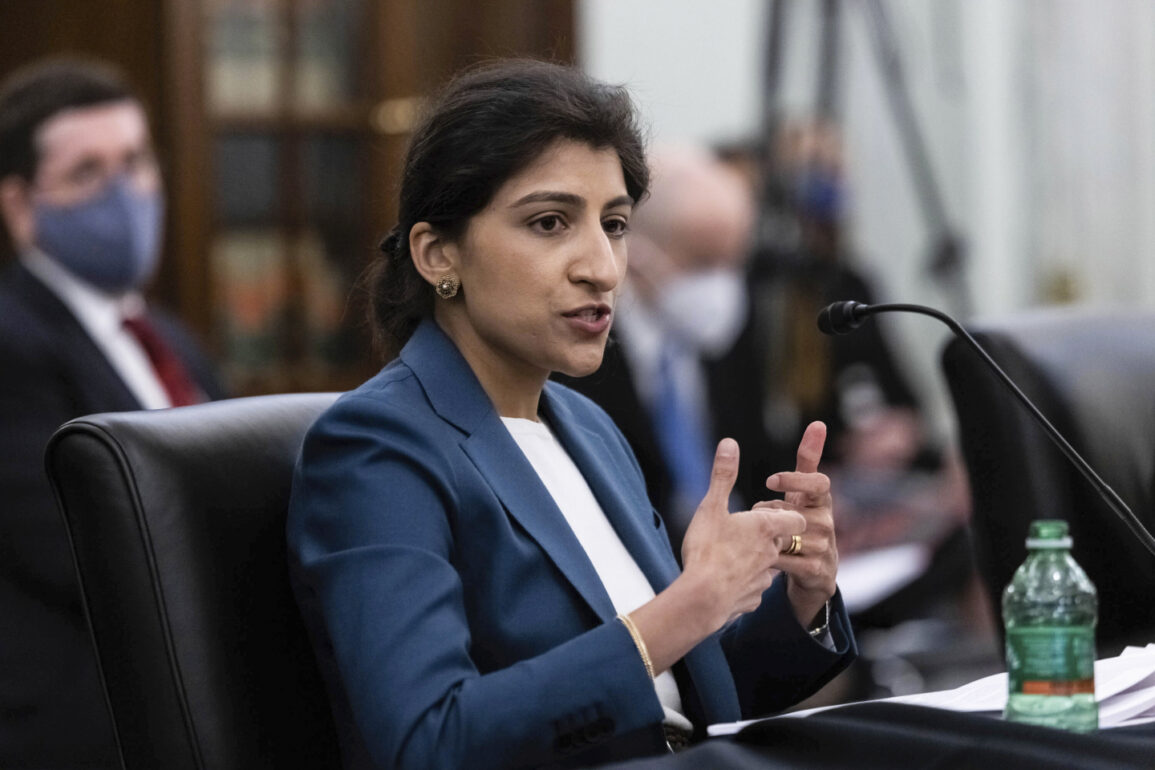
The Federal Trade Commission (FTC), under the leadership of Chair Lina Khan, is once again trying to stop American companies from merging in order to better compete with their larger rivals. The agency’s target is not big tech, but big handbag brands— specifically the proposed $8.51 billion merger of handbag manufacturers Tapestry (Coach, Kate Spade, and Stuart Weitzman) and Capri (Michael Kors, Versace, and Jimmy Choo.)
This merger seems unobjectionable since it will not create a handbag monopoly. Rather, by merging, Tapestry and Capri will be better able to compete with the big European luxury handbag producers like LVMH (Louis Vuitton) and Kering (Gucci). However, the FTC does not see it that way. The FTC is concerned that Tapestry (which acquired Stuart Weitzman and Kate Spade in the last decade) is a “serial acquirer” bent on monopolizing the “affordable luxury” market.
Affordable luxury is a term coined by Tapestry to distinguish itself from other handbag makers. Affordable luxury handbags give consumers a less expensive alternative to luxury bags like Louis Vuitton and Gucci, without having to “settle” for a mass market handbag. Claiming Tapestry is monopolizing the “affordable” luxury handbag market makes as much sense as accusing Wendy’s of monopolizing the “hot and juicy” hamburger market. But facts and logic are not an impediment to the FTC when it needs to strengthen its case.
The Tapestry-Capri case is hardly the first time the FTC has tried to make the target of agency action look more formidable than it is by modifying the affected market. Earlier this year, the agency launched an investigation into Roark Capital’s proposed $9.6 billion acquisition of popular sandwich franchise Subway. Roark already owns a number of popular fast food chains including Subway rival Jimmy John’s. The FTC is concerned that the merger will create a sandwich monopoly. However, this is only a concern if one narrows the market to restaurants preparing made-to-order sandwiches.
But the market Subway and Jimmy John compete in is the much broader category of fast food restaurants. In this highly competitive market, consumers have a wide variety of food options, including burgers (McDonald’s, Burger King, Wendy’s and many others) Mexican (Taco Bell, Chipotle) and Chinese (Panda Express). Consumers can also grab a sandwich or a sweet treat along with their latte at Starbucks, or Dunkin’ Donuts (another Roark company). Consumers can also buy their own meat, cheese, veggies, condiments, and bread to make their own sandwiches. This means Subway is also competing with grocery stores, including big box stores like Wal-Mart and Target. Amazon has also gotten into the grocery market with their line of Amazon Fresh stores.
Speaking of Amazon, the FTC’s antitrust lawsuit against Amazon provides the most surreal example of the FTC narrowing a market. According to the FTC, Amazon competes in a narrow “big box” market, where their only competitors are Wal-Mart, Target, and a small handful of other stores. This is why the agency is fighting the American bookseller’s request to join the FTC suit, on the grounds that small and independent bookstores are not really competitors with Amazon. By the FTC’s logic Amazon does not compete with Barnes and Noble or Books-a-Million.
While discussing the FTC’s challenge, Tapestry CEO Joanne Crevoiserat, observed that “….they [the FTC] don’t understand how consumers shop today, and they don’t understand the dynamics of a marketplace with no barriers to entry and constant influx of new competitors.” This is an obvious observation of the agency’s failure to understand how its pattern of redefining the relevant market to boost its case to stop mergers makes it impossible for a company to know if a merger will be challenged by the FTC. This provides an additional disincentive for competitors—especially smaller companies that cannot easily afford legions of lawyers—from engaging in even the most beneficial mergers. This increases the market power of large corporations and further concentration in the marketplace. Fortunately, Tapestry and Capri are committed to fighting the FTC. A victory for them would be a victory for sound economics, the rule of law, and for workers and consumers who value the “affordable” luxury provided by a free market.
This post was originally published on this site be sure to check out more of their content.







